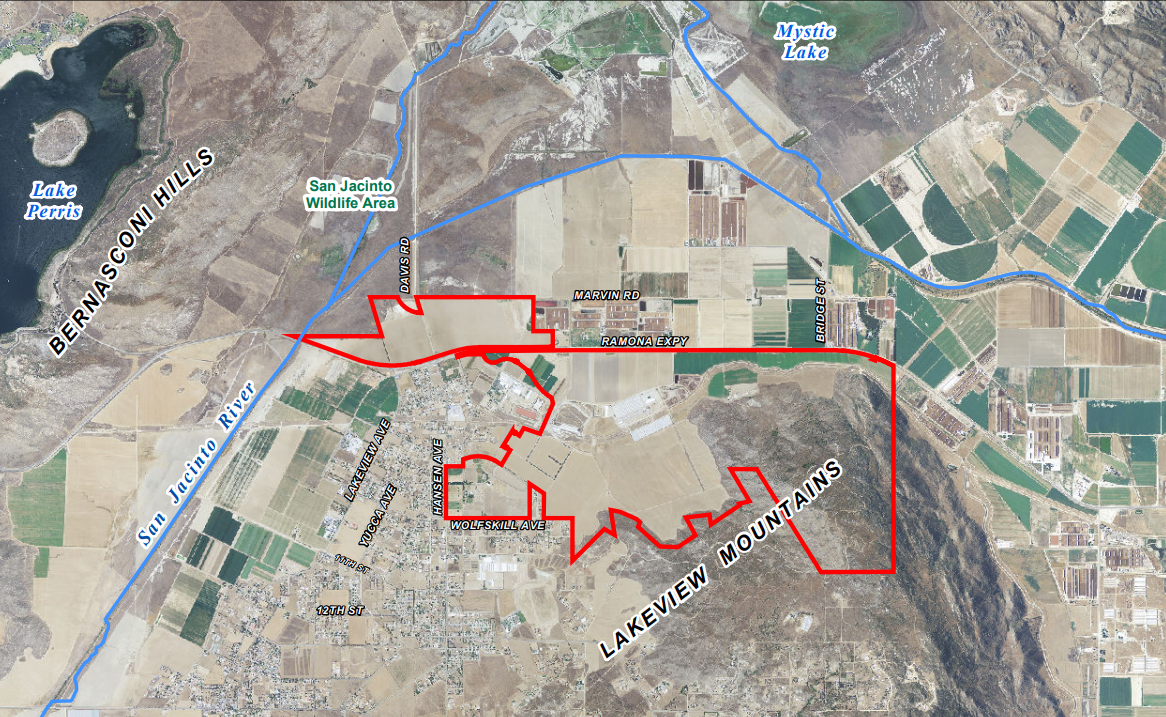Riverside County's approval of 8,725-unit housing development overturned

A state court has partially overturned Riverside County's approval of an 8,725-unit housing development near the San Jacinto Wildlife Area, agreeing with environmental groups that the county's environmental review was inadequate.
The ruling is the latest delay to the master-planned community in unincorporated Riverside County between San Jacinto and Perris that has been in the works for nearly 20 years.
Villages of Lakeview first proposed in 2004
Nuevo Development Company first submitted an application for The Villages of Lakeview in 2004, at the time proposing 11,350 new units on approximately 3,000 acres. The Riverside County Board of Supervisors approved the plans and the environmental impact report in 2010, but following multiple lawsuits, the county had to vacate those approvals.
In response to this, the county greenlighted a project alternative with a smaller development footprint ― 8,725 housing units ― in December 2017. The project would be built in four phases over 25 years, according to the developer, and include parks, open space, trails, shopping, and office space. The Villages of Lakeview website says the project will add "over $2 billion in economic benefits to the surrounding community, including funding for a new high school, and three new elementary and middle schools," and will create over 1,000 permanent new jobs.
The proposed housing development comes as the county has grown, increasing housing needs. Riverside County's population has grown from around 1.5 million in the 2000 census to 2.4 million in the 2020 census, in recent years adding residents at a rate of 30,000 per year even as other California counties lose population.
But environmental groups, including the Center for Biological Diversity, the Sierra Club, and the San Bernardino Valley Audubon Society, have long opposed the project. The groups have argued in lawsuits that the county hasn't adequately analyzed the impacts of the project on water supply or planned to mitigate potential damage to the nearby San Jacinto Wildlife Area, among other concerns.
Court sides with environmental groups
The coalition of environmental groups again sued following the county's 2017 approval of the project, but the county and developer initially prevailed, when a Riverside Superior Court judge ruled that the project complied with the California Environmental Quality Act. The groups appealed this decision, sending the case to the California Fourth District Court of Appeal.
Last week, that court sided with the environmental groups on two of their arguments against the county's environmental impact report. The court agreed that the environmental impact report "failed to address the environmental effects of supplying water to the project," which is expected to require over 1.57 billion gallons of water per year.
The court also agreed that plans for a developer-funded "environmental stewardship program" that would provide community education and funding to the local agencies that manage the wildlife area to offset the impact of the development and its influx of residents were "inadequate."
“This ruling reminds us why California’s environmental protections are so critical to helping us make smarter land-use decisions and avoid irresponsible sprawl,” said J.P. Rose, a senior attorney at the Center for Biological Diversity, in a press release. “A wet winter in California doesn’t mean we can ignore the potential harm to wildlife and existing communities from supplying water to a new 2,800-acre development.”
What's next for the project?
The court remanded the case back to the lower court, ordering it to direct the Board of Supervisors to set aside its previous approval of the environmental impact report.
The county plans to "thoroughly review the appellate court ruling to determine next steps," according to Felisa Cardona, spokesperson for the Riverside County Transportation and Land Management Agency.
This article originally appeared on Palm Springs Desert Sun: Riverside County's approval of 8,725-unit housing development overturned

